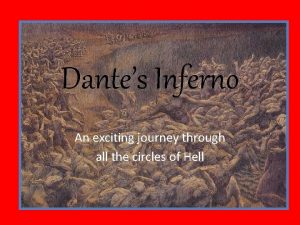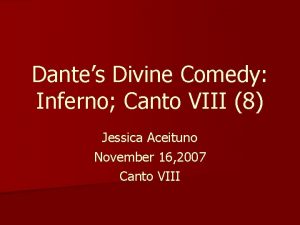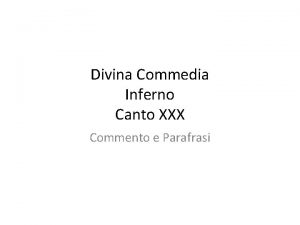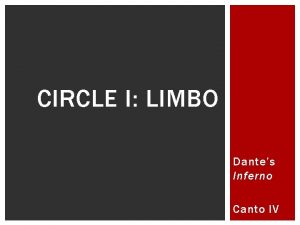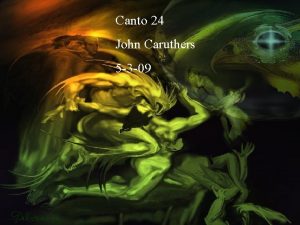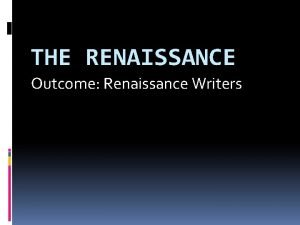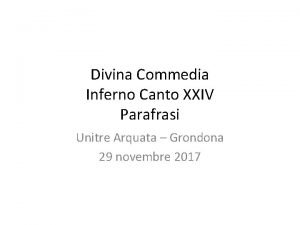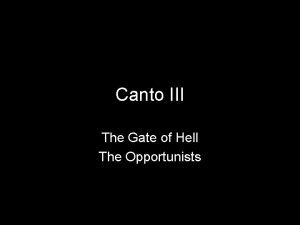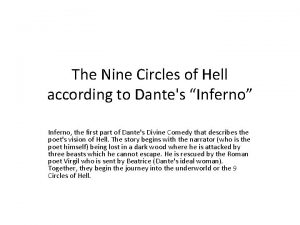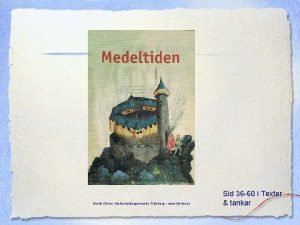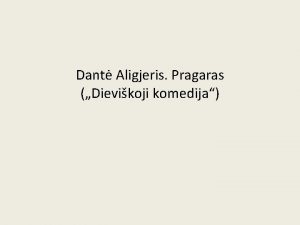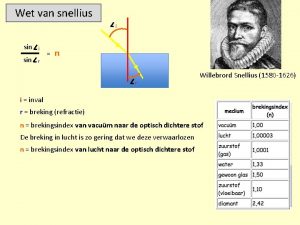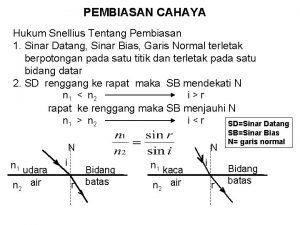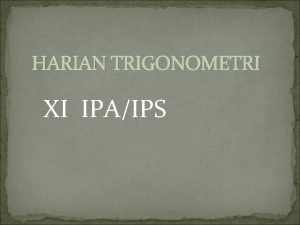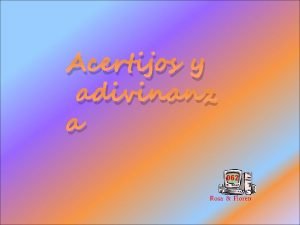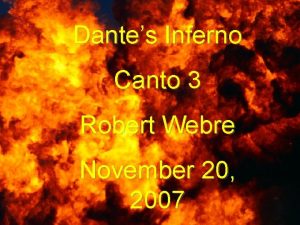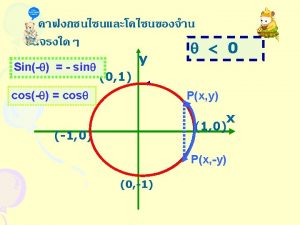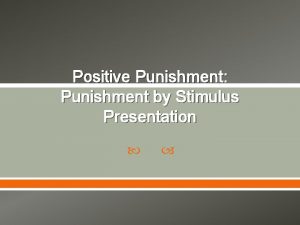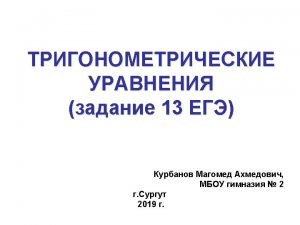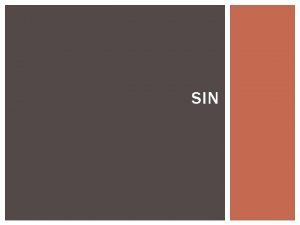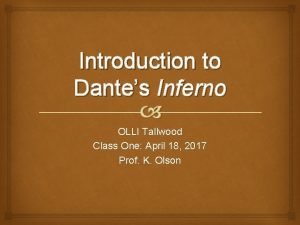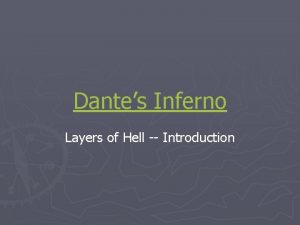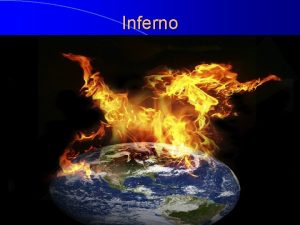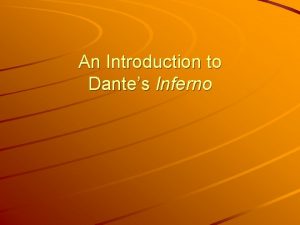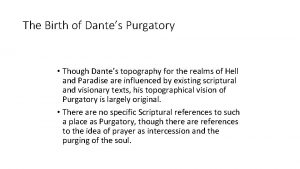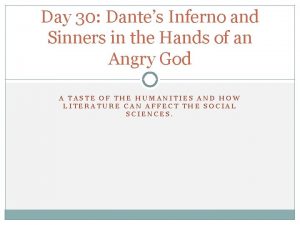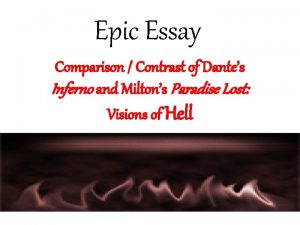Sin and Punishment In Dantes Inferno 1 Introduction

















- Slides: 17

Sin and Punishment In Dante’s Inferno 1

Introduction- Contrapasso • Dante, through his Divine Comedy provides the modern observer with a unique insight into the worldview of a thinking man at the height of the Age of Faith. 1 • The principal of justice that determines the precise form which punishment will take in hell and Purgatory is called: “Contrapasso”. 2 • This concept will be explored in this presentation. • We will look at five examples of contrapasso and try to come up with why these forms of 2 punishment fit the sin.

1 - Lust: Canto 5 • In land of Lust the unfortunate are swirled about by unseen winds. • Since the worse sins are further down in hell. This is the first area of hell and so this sin is considered to be the least. 3 • Just like in life they were tossed about by their desire. • “Here, there, up, down, they whirl and, whirling, strain with never a hope of hope to comfort them, not of release, but even of less pain. ” 4 3

2 - Usury I: Canto 17 • The souls are crouched with their moneybags hanging from their necks. 5 • Dante’s understanding defines philosophy’s and theology’s respective scopes of authority in guiding human conduct. 6 4

• Here we see bankers. • Dante had difficulty with the idea of getting something for nothing. • In his mind, getting interest on money was not being honest. • In addition, Beatrice’s family was rich due to the fact that they were one of the biggest banking concerns in Florence. • Because Beatrice's’ family was richer she could not marry Dante. 8 • Is some of the dislike Dante has for usury based on his lost love? Usury II 5

3 - Simony I: Canto 19 • Flaming tongues of fire assailing the feet and legs of the Simonites who are thrust headlong into the baptismal fonts of hell. • On the church’s birthday we celebrate Pentecost when the Holy Drawing 7 Spirit comes as tongues of fire on This sin is especially the new church members. heinous to Dante because it • The punishment of tongues of fire undermines the sanctity of represent the perversion of the Holy the church since only the Spirit that these individuals did by wealthy can get a position in using there power to line their the church then the true pockets by selling church positions. saints can never hold office and lead the church to sanity. 8 6

Simony II- Simon Magnus • When Simon saw that the Spirit was conferred by the laying on of the apostles’ hands, he offered them money and said, “Give me this power too, so that anyone upon whom I lay my hands may receive the holy Spirit. ” But Peter said to him, “May your money perish with you, because you thought that you could buy the gift of God with money. 9 • So we have the sin of Simony named after Simon Magnus. 7

Simony III- The Fall of Simon Magnus • Simon Magnus is said to have met his death at Rome, after an encounter with the apostle Peter. Simon had raised himself in the air and in answer to the prayer of Peter and Paul he was dashed headfirst to the ground and was killed. 10 • No doubt this story was active during Dante’s time and so we see the Simonites headfirst in baptismal fonts. 11 • Simony is to Church offices what graft is to Civic offices. 12 8

Simony IV-A Baptistery Note the deep baptismal font. In this case there are four fonts for the celebration of baptism. Priests or deacons would stand in the center and administer baptism to those infants in one of the four fonts. 13

Simony V-The Problem with Boniface • Pope Boniface VIII was extremely disliked by Dante. • Because of his political posturing Pope Boniface had a direct influence on the lifelong exile of Dante from Florence. • As a result Dante would certainly have placed him in hell in the Inferno if it weren’t for one problem: Boniface was still alive! 10

Simony VI-The Problem with Boniface • One of the rules of the Commedia is that all those that are found there must have died before it was written in 1300 AD, Boniface wouldn’t die until 1303 AD. 14 • So Dante uses a clever devise to place Boniface in hell before his death… 11

Simony VII- The Problem with Boniface - Solved • In Canto 19: We witness the past pope Nicholas III saying from inside the baptismal font in hell: “Are you there already, Boniface? Are you there already? By several years the writ has lied. And all that gold, and all that care-” 15 • So Dante places Boniface expectantly in hell. • He has Nicholas III, a past pope, expecting Boniface to show up in hell. Nicholas knew Boniface’s sin well because it was Nicholas’s own: Simony.

4 – Suicide: Canto 13 • Here souls are encased in trees. • These are the suicides that rejected their body’s life on earth. • Their body animation is taken from them so…. . they are encased in trees. • Because the suicides intentionally destroyed their bodies in life, they don’t get to resemble them in death. 16 • Virgil asks Dante to break off a bit of one of the trees. • Through the opening comes a cry of anguish.

5 – Hypocrites: Canto 23 • Gold outer veneered garments are weighted down by heavy lead inner garments. • The word “hypocrite” means: “gilded over”. • Hypocrisy, which pretends to be on the outside what it is not on the inside. 17 • He is punished by an outward appearance of valuable gold but the true substance is far less valuable: lead. 18 14

Conclusion • Christian understanding of sin and Hell as a selfchosen punishment and it is asserted that freedom is linked to, and not opposed to, tradition and interdependency. 19 • When Dante Alighieri began his Divine Comedy around the year 1308, it was the first time in the history of imaginative literature that an author had placed himself at the center of his tale, and the poem endures as not only the first but the most effective epic of the self. 20 15

References • • • 1. Burge, James. Dante: ”Reason and Religion. ” History Today. (March 2011)Vol. 61 Issue 3, p 1015. 6 p. 2. Dante Encyclopedia, Copyright 2010 Richard Lansing and Garland Publishing 2000 3. Mahfood, Sebastian “Dante’s Divine Comedy: Canto Reflections Fall”, 2016, Canto 5: page 5 paragraph 4 4. “The Divine Comedy “Translated by John Ciardi New American Library Copyright 1954 page 48. 43 5. Mahfood, Sebastian “Dante’s Divine Comedy: Canto Reflections Fall”, 2016, Canto 17: page 17 paragraph 3 6. Aleksander, Jason. ”Dante’s Understanding of the Two Ends of Human Desire and the Relationship between Philosophy and Theology. ” Journal of Religion. (April 2011), Vol. 91 Issue 2, p 158 -187. 30 p. 7. Burge, James. “Dante: Reason and Religion. ” History Today. (March 2011), Vol. 61 Issue 3, p 1015. 6 p. 8. Shutt , Thomas B. “Dante and His Divine Comedy: The Modern Scholar”, © 2005 by Timothy B. Shutt and Recorded Books, LLC 9. Acts 8: 18 -20 New American Bible 10. International Standard Bible Encyclopedia Online Edited by James Orr, published in 1939 by Wm. B. Eerdmans Publishing Co. © 2016 11. Shutt , Timothy B. “Dante and His Divine Comedy: The Modern Scholar”, © 2005 by Timothy B. Shutt and Recorded Books, LLC

References II • • • 12. Mahfood, Sebastian “Dante’s Divine Comedy: Canto Reflections Fall”, 2016, Canto 19: page 19 paragraph 2 13. Shutt Timothy B. “Dante and His Divine Comedy: The Modern Scholar”, © 2005 by Timothy B. Shutt and Recorded Books, LLC 14. Herzman Ronald B. and Cook, William R. “Divine Comedy- The Great Courses” © 2001 The Teaching Company, LLC (P)2001 15. The Divine Comedy Translated by John Ciardi New American Library Copyright 1954 page 151. 49 16. Mahfood, Sebastian Dante’s Divine Comedy: Canto Reflections Fall, 2016, Canto 13: page 13 -14 17. Mahfood, Sebastian Dante’s Divine Comedy: Canto Reflections Fall, 2016, Canto 23: page 23 paragraph 2 18. “The Divine Comedy” Translated by John Ciardi New American Library Copyright 1954 page 183. 58 -66 19. Esolen, Anthony. “The Freedom of Heaven & the Freedom of Hell. ” First Things: A Monthly Journal of Religion & Public Life. (March 2009), Issue 191, p 37 -41. 5 p. 20. Siegel, Lee. “Out of the Dark Wood, Dante and the subversive ego”, Harper’s Magazine, 0017789 X, (May 2002), Vol. 304, Issue 1824
 Dante's inferno levels of hell
Dante's inferno levels of hell Dantes inferno canto 8
Dantes inferno canto 8 Dante's inferno xxx
Dante's inferno xxx Canto iv inferno parafrasi
Canto iv inferno parafrasi Divina commedia canto 24
Divina commedia canto 24 Canto 7
Canto 7 Writers from the renaissance
Writers from the renaissance Canto 24 inferno
Canto 24 inferno Opportunists punishment inferno
Opportunists punishment inferno Nilai dari sin 160° + sin 40° adalah
Nilai dari sin 160° + sin 40° adalah 5th circle of hell
5th circle of hell Dantes helvetestratt
Dantes helvetestratt Dantes 9 pragaro ratai
Dantes 9 pragaro ratai Sin i/sin r =
Sin i/sin r = Nilai indeks bias udara
Nilai indeks bias udara Tan inverse value
Tan inverse value Sin 112,5°
Sin 112,5° Al ir parece que vengo y al venir es que me voy
Al ir parece que vengo y al venir es que me voy
